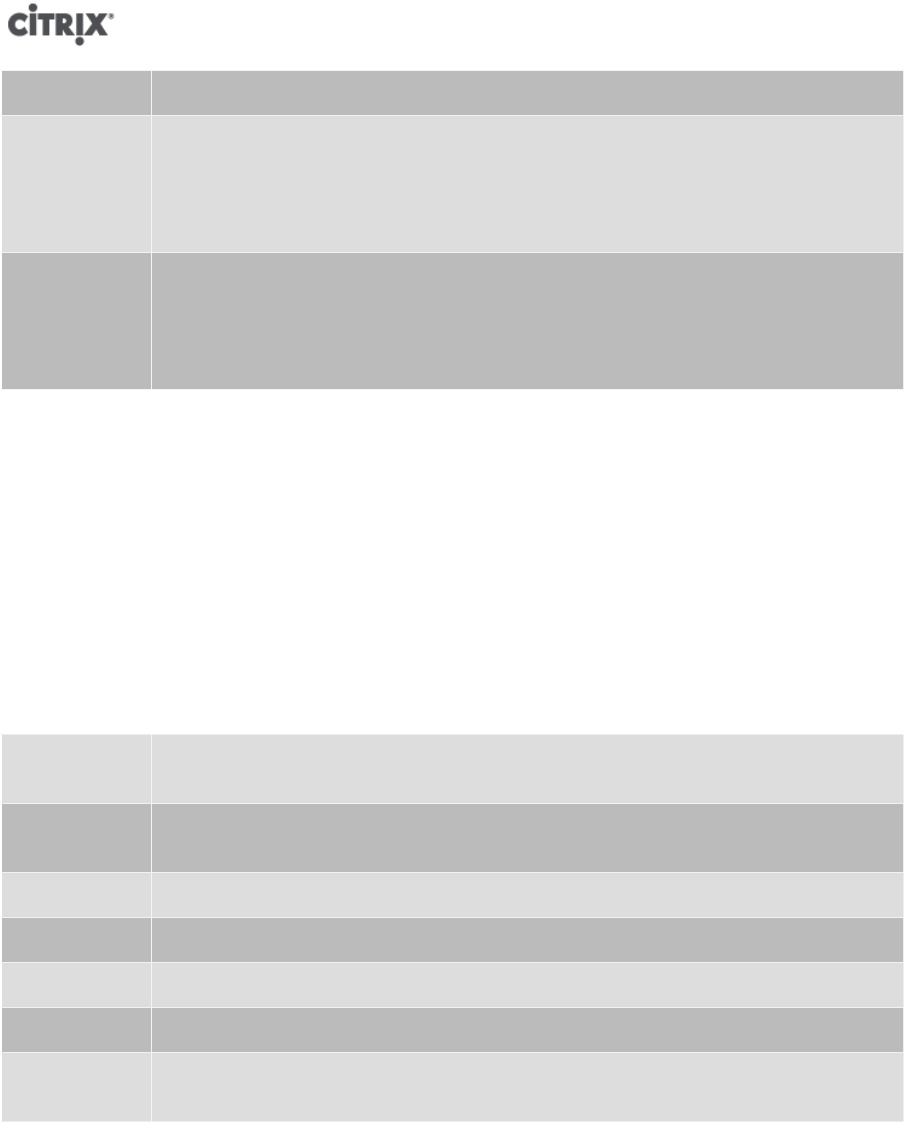
22
RAM 2GB minimum, 4GB or more recommended
Disk Space Locally attached storage (PATA, SATA, SCSI) with 16GB of disk space minimum, 60GB of disk
space recommended, or SAN via HBA (not via software) if installing with multipath boot
from SAN (see http://hcl.vmd.citrix.com for a detailed list of compatible storage solutions).
Product installation creates two 4GB partitions for the XenServer host control domain.
Network 100Mbit/s or faster NIC. One or more gigabit NIC(s) is recommended for faster P2V and
export/import data transfers and VM live migration.
For redundancy, multiple NICs are recommended. The configuration of NICs will differ
depending on the storage type. See vendor documentation for details.
Note:
In some support cases, serial console access is required for debug purposes. Therefore,
when setting up a XenServer configuration, it is recommended that serial console access
is configured. For hosts that do not have physical serial port (such as a Blade server) or
where suitable physical infrastructure is not available, customers should investigate if an
embedded management device, such as Dell DRAC or HP iLO can be configured. For more
information on setting up serial console access, see CTX121442, How to Set Up a Serial Cable
for Troubleshooting on XenServer.
A.1.2. XenCenter System Requirements
The system requirements for XenCenter are:
Operating
System
Windows 8, Windows 7, Windows Vista, Windows XP, Windows Server 2012, Windows
Server 2008 R2 (all editions and versions), Windows Server 2008, Windows Server 2003
.NET
Framework
Version 3.5
CPU Speed 750MHz minimum, 1GHz or faster recommended
RAM 1GB minimum, 2GB or more recommended
Disk Space 100MB minimum
Network 100Mb or faster NIC
Screen
Resolution
1024x768 pixels, minimum
XenCenter is compatible with all versions of XenServer from v5.0 Update 3 onwards.
A.1.3. Supported Guest Operating Systems
For a list of supported VM operating systems, see the XenServer Virtual Machine User's Guide.
A.2. Pool Requirements
This guide assumes that you are creating a homogeneous pool of XenServer hosts. A homogeneous pool requires
that:
• The CPUs on all hosts in the pool be the same, in terms of vendor and model (except for stepping numbers)
• All CPU features that are exposed to the software be the same


















